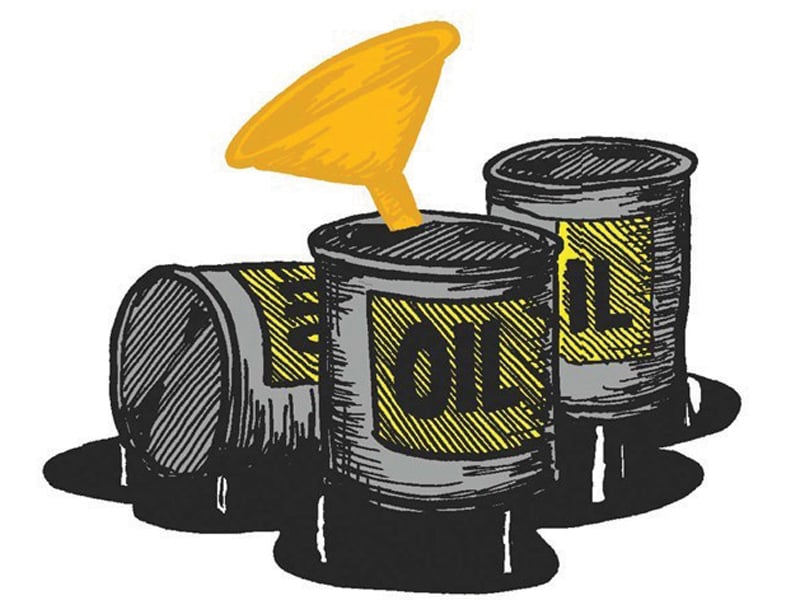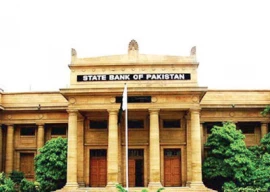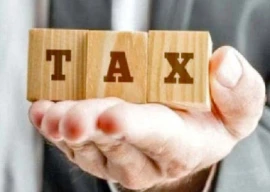
If you have held an important position in the energy supply business in recent years and if you know rogue traders in power companies, here’s an offer you can’t refuse. If you can secure a deal between a power utility and a furnace oil supplier, you will earn Rs150 for every ton of fuel oil supplied.
You think that figure looks small? Even an average 200 megawatt (MW) power station consumes around 20,000 tons of oil a month. Do the math – that’s a profit of Rs3 million, merely for playing the middleman!
“It may seem to be the worst time to be part of Pakistan’s energy chain: nothing could be farther from the truth,” an official confided to The Express Tribune. He is linked to a petroleum company’s furnace oil supply business. “Oil prices have reached such high levels that huge sums can be made by pocketing only half a percent as commission,” he explained.
Pakistan’s dependence on furnace oil for power generation has increased as gas shortages exacerbated over the years. The country spent billions of dollars for the import of around 6.5 million tons of furnace oil this fiscal year, according to estimates. Total sales of furnace oil currently stand at nine million tons, almost 90% of which are made to power plants. Due to the uptick in demand, the ex-refinery price of furnace oil has more than doubled to over Rs62,000 per ton over the past four years.

“This surge [in price] has given a whole new dimension to the business. Everyone is trying to get hold of contracts and furnace oil supplies. After all, it will be end consumers who will bear the cost differentials,” another official said. The price of furnace oil, its transportation costs and the margins earned by suppliers are usually passed on to consumers under the power tariff.
Going rogue
The 11 IPPs commissioned in the country under the 2002 Power Policy have exclusive Fuel Supply Agreements with members of the Oil Companies Advisory Committee. These agreements cover supplies for 10 to 12 years.
A 3.5% margin has been fixed for furnace oil suppliers under the policy. “Everything looked okay for the first few months [after the agreements were signed]. Then the IPPs started asking for credit. There is no clause in the agreement for that – on the contrary, they are bound to make advance payments to us,” executives of a company, which has seen a drop in its business, told The Express Tribune.
The IPPs then started buying fuel from the open market – a network of small suppliers who acquire furnace oil and are willing to pay for someone to find them buyers. After the government started delaying payments to the power sector, the backdoor dealing also helped diversify IPPs’ risk, who started strengthening relationships with suppliers who offered credit sales and better prices.
The size of trades settled in backdoor dealings ranges between 50,000 to 100,000 tons of fuel oil a month. “In almost all cases, the rogue employee [who sets up the deal] is a nephew or some relative of the owner of the IPP involved,” an official revealed.
Pakistan State Oil (PSO) is by far the largest furnace oil supplier, with a 60% market share. “We were approached to become a part of the game, but we had to refuse because all our records are audited,” a company official said, asking not to be named.
How the system works
IPPs, small suppliers and middlemen use deceptive payment techniques which are hard to detect. Executives explained that the 3.5% margin (allowed officially) comes to around Rs2,100 per ton, out of which around Rs1,100 is taken by the supplier as his margin on sales and Rs150 is paid to the person who arranges the contact. The remaining sum (Rs850) is split between the rogue employee of the IPP (the other middleman in the deal) and the fuel transporter.
“Their invoices won’t tell you anything. As a matter of fact, the price of furnace oil is stated below actual cost to pacify the regulator. They erase all evidence of dirty deals,” an official said.
However, officials insist that an audit of IPPs’ records will help identify underhanded dealings.
Despite repeated attempts, no one at the National Electric Power Regulatory Authority was available for comments. The Securities and Exchange Commission of Pakistan has reportedly initiated an investigation into the matter: its outcome is still awaited.
Published in The Express Tribune, May 31st, 2013.
Like Business on Facebook to stay informed and join in the conversation.
COMMENTS (2)
Comments are moderated and generally will be posted if they are on-topic and not abusive.
For more information, please see our Comments FAQ




1734780406-0/Untitled-(11)1734780406-0-165x106.webp)










1734587529-0/Express-Tribune-(1)1734587529-0-270x192.webp)







Corruption is Pakistan's second name. It's shameful they are stealing from their own motherland.
Since when was oil business clean? Small fish make the news papers and big fish puts social responsibility advertisements.